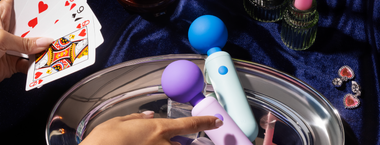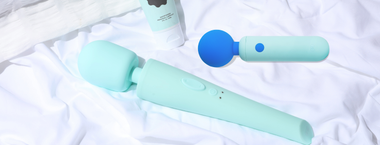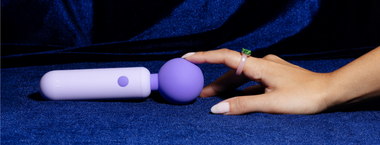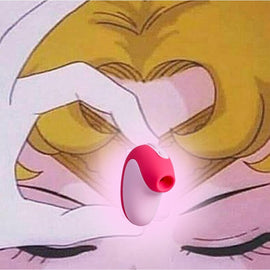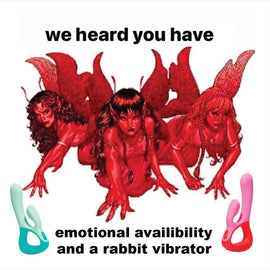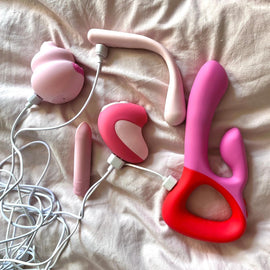5 Ways Your Sex Drive Changes After Giving Birth

Some of the most common fears we hear as birth doulas are Am I ever going to have sex again? And Will my vagina be a gaping hole forever?
So, for anybody who wants to get pregnant at some point, or loves someone who does, here are some things we wish we knew beforehand to make the whole thing a bit less... daunting.
Excerpted from the book Why Did No One Tell Me This: The Doulas’ Honest Guide for Expectant Parents by Natalia Hailes and Ash Spivak, published by Running Press, a division of Hachette Book Group.
----------------------
It is true that your parts do change in order to accommodate your babe. But, while your body may feel different, different doesn’t have to be detrimental! Just as there may be things that don’t feel so good anymore, there are likely many new pleasures for you to discover and explore!
To start, it’s helpful to understand why you may experience a change in your sex drive—though it doesn’t mean it’s dead, we promise!
Hormones
Hormonal shifts play a major role in how you feel sexually postpartum, particularly if you are breast/chest-feeding because prolactin (the hormone that lets your body produce milk) change your estrogen and progesterone production, which can result in a lower libido. Add these hormonal changes to the stress of being a new parent and zap—there goes your sex drive! In some ways this shift is designed by nature: you’re wired to care for your baby as opposed to making a new one.
It Just Doesn’t Feel Good.
Lower levels of estrogen can cause vaginal dryness, making sex less comfortable. While this generally gets resolved with time, lube definitely helps in the meantime (and always, really).
It is also possible, especially if there was trauma during your birth, that your fear of insertion or any vaginal play (Will my vulva tear again? It looks like a wreck down there... What about my hemorrhoids?) is the root cause of physical symptoms like vaginal tightness, making penetration of any kind painful or impossible. If any of this resonates or if you are feeling any pain during sex, we recommend seeing a pelvic floor specialist. Sex can feel good again! And the pain may be an indication that your body needs some help healing.
Breast/chest-feeding
In addition to the hormonal shifts it brings, breast/chest-feeding can also change your relationship to your body—you may feel touched-out, the fact that you can lactate may make you feel disconnected from your body, and/or it may feel strange or wrong to include your breasts/chest as part of your sexuality when your baby needs them. There is no magic solution here, but simply recognizing where you are and communicating this with your partner is a good first step.
If you are having trouble including your breasts/chest in your sexuality, try giving them different identities for their different roles. Maybe you call them one thing while feeding and another during sex. Maybe you use your milk as a part of role-playing, instead of quickly getting rid of it or ignoring it. The main thing to get across here is that it is not dirty or shameful for both your baby and your partner to derive pleasure from the same part of you. And drawing the distinction when they are playing each role can be helpful.
Your Emotional State
If you’re experiencing postpartum depression, anxiety, PTSD, or just having an overall hard time, it is very common for your sex life to be affected. Communicate with your partner and give yourself some time to heal. There’s also just plain ole exhaustion. This can have a big impact too. Get support as needed, and remember, you won’t be stuck here forever.
PSA: You Can’t Actually Stretch Out Your Vagina!
Many people have a misconception that the vagina is like a giant gaping hole or tube that can have a bigger or smaller diameter. The truth is that the vaginal walls touch one another—meaning that anything that passes through is asking those walls to part. As a result, it’s kind of a tight squeeze no matter what.
Even so, the vagina is elastic and made of muscles, and muscles sometimes need some help so that they don’t get too tight or too weak, particularly after they just had a major workout. Remember, these muscles are connected to your pelvic floor, which is connected to your perineum, anus, and core (the gang’s all here!). So taking care of the whole fam, not just individual parts, is important since they can all affect each other, especially postpartum!
During pregnancy, perineal massage and diaphragm breathing are a great way to start loving on that area and getting yourself acquainted with your pelvic floor.
Postpartum, once your stitches come out and you get the go-ahead from your practitioner, continuing with massage at the site can help break up any adhesions as well as build up your readiness to be intimate again.
Here are some tips to help you get your groove back.
• Masturbate. This is a great way to get comfortable with your post-birth body and start to safely explore what you do and do not like. Challenge yourself to even have some fun with this—after all, you have a new body to explore- what can you find?! Share your discoveries with your partner if you feel comfortable.
• Communicate. Let your partner know as soon as something doesn’t feel good. And let them know when you do like something. If you have found something on your own that you like, ask for it.
• Experiment. Now that you have this different-feeling body, you might as well take it for a joyride! Get some new toys. Use lube. Try role-playing. Live out a new fantasy. Allow yourself to go a little wild in your new identity.
• Just get back on the horse. And we say this with care. This doesn’t mean neglecting your feelings or that they don’t matter. We know you are exhausted. But sometimes it takes being intimate to remember that you actually really like it.
Why Did No One Tell Me This: The Doula’s Honest Guide for Expectant Parents, which breaks down all the common fears and provides tried and true practical tips after supporting hundreds of births, is now available wherever books are sold!
Ash Spivak is an Internationally Certified Birth Doula, Doula Trainer and co-founder of Allbodies, a digital platform for modern health education. Her work has been featured in The New York Times, Forbes, Newsweek, and Teen Vogue.
Natalia Hailes is a birth doula, lactation specialist, and reproductive health advocate. She's worked with hundreds of families supporting them through pregnancy and beyond. Her work has been featured in Newsweek, Refinery29, and Well+Good, among others. Learn more at nataliahailes.com.
Follow Ash and Natalia on Instagram: @ourbrilliantbodies

Latest Articles

A Hot and Quick Guide to BV, UTIs, and Yeast Infections
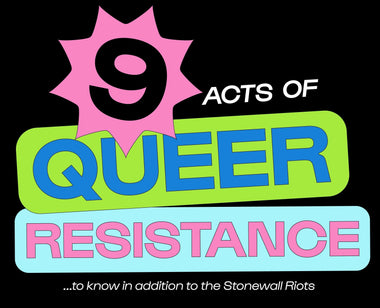
9 Acts of Queer Resistance to Know in Addition to the Stonewall Riots

